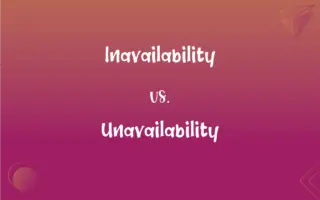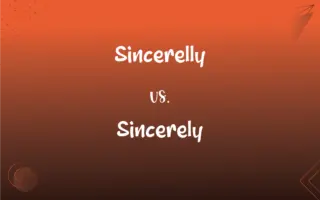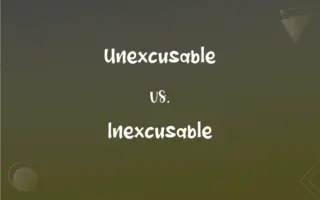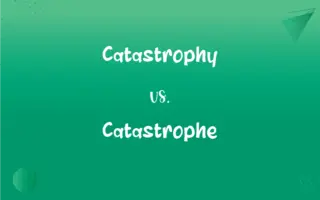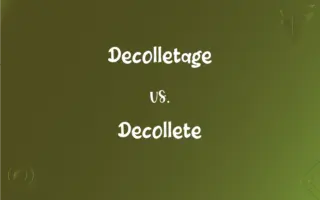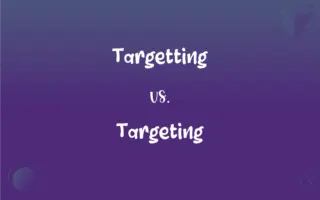Insurence vs. Insurance: Mastering the Correct Spelling
Edited by Aimie Carlson || By Janet White || Updated on March 12, 2024
"Insurence" is an incorrect spelling, whereas "Insurance" is the correct spelling representing a protection against financial loss.
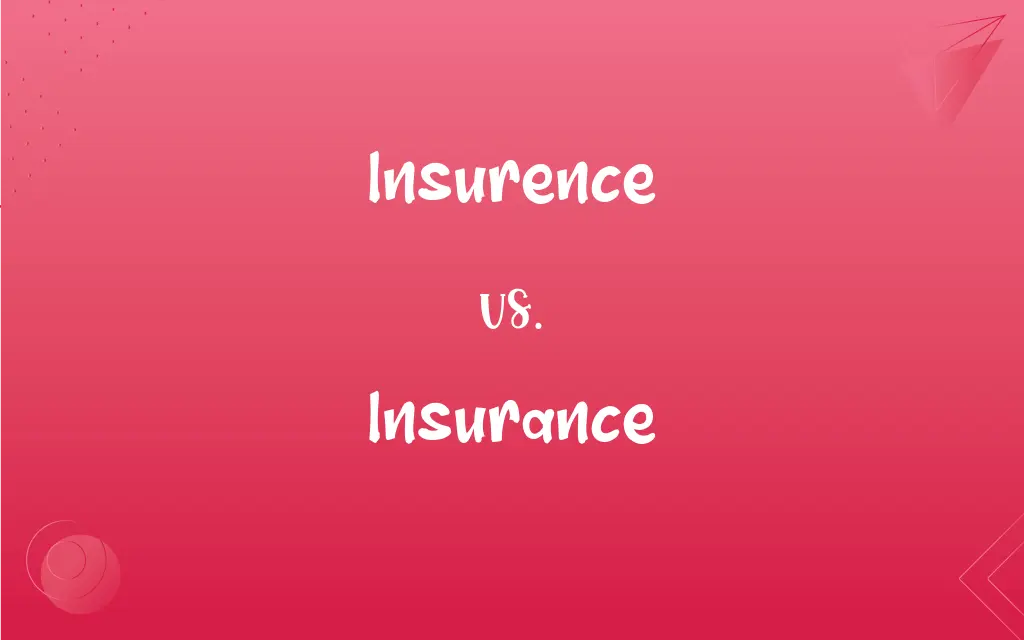
Which is correct: Insurence or Insurance
How to spell Insurance?

Insurence is Incorrect

Insurance is Correct
ADVERTISEMENT
Key Differences
Insurance ends with "-ance" like "assistance."
Think of "in-SUR-ance" to emphasize the middle syllable.
Visualize a company logo with the correct spelling "Insurance."
Remember that "sure" in "Insurance" means you're "sure" against risks.
Consider the word "assure" as a mnemonic; you assure protection with insurance.
ADVERTISEMENT
Correct usage of Insurance
We need to update our home insurence policy.
We need to update our home insurance policy.
The company offers health insurence benefits to employees.
The company offers health insurance benefits to employees.
She works in the life insurence industry.
She works in the life insurance industry.
He bought car insurence for his new vehicle.
He bought car insurance for his new vehicle.
Is flood insurence included in our policy?
Is flood insurance included in our policy?
Insurance Definitions
A means of protection against financial loss.
Health insurance covers medical expenses.
An arrangement to guarantee payment in case of loss.
Travel insurance is a must for international trips.
A business providing risk management.
The insurance company settled her claim quickly.
The act, business, or system of insuring.
The state of being insured.
A means of being insured.
An arrangement or agreement that protects someone from incurring future losses, as from damage, theft, illness, or death, especially a contract that transfers the risk of a specified loss to another party in exchange for the payment of a premium.
The sum or rate for which such a contract insures something.
The periodic premium paid for this coverage.
A protective measure
Biking helmets that provide insurance against a head injury.
Being a point or score that increases one competitor's lead enough to prevent the opponent from achieving a tie with one more score
An insurance run.
A means of indemnity against a future occurrence of an uncertain event.
The car was totalled, but fortunately I had insurance.
The business of providing insurance.
After five years in banking, I switched to insurance.
(figurative) Any attempt to forestall an unfavorable event.
The sky was clear, but I took my umbrella for insurance.
(blackjack) A bet made after the deal, which pays off if the dealer has blackjack.
I only take insurance if the count is right.
(countable) An insurance policy
The premium paid for insuring property or life.
The sum for which life or property is insured.
A guaranty, security, or pledge; assurance.
The most acceptable insurance of the divine protection.
Any means of assuring against loss; a precaution; as, we always use our seat belts as insurance against injury.
Promise of reimbursement in the case of loss; paid to people or companies so concerned about hazards that they have made prepayments to an insurance company
Written contract or certificate of insurance;
You should have read the small print on your policy
Protection against future loss
A contract providing compensation for specified loss or damage.
He purchased insurance for his new car.
A premium paid for coverage against unpredictable events.
Her insurance payment is due next week.
Insurance Sentences
Insurance companies assess risk before issuing a policy.
Life insurance provides financial security for families in case of a tragedy.
Many people purchase travel insurance before going on vacation.
Pet insurance has become increasingly popular for veterinary care.
Homeowner's insurance can protect against theft and natural disasters.
Auto insurance is mandatory in many states.
Liability insurance is important for businesses to protect against lawsuits.
Renters insurance covers personal property in an apartment.
Health insurance helps cover the cost of medical treatments.
Disability insurance supports individuals who cannot work due to injury.
Insurance agents help clients choose the best policy for their needs.
Claiming insurance requires submitting proof of loss or damage.
Insurance premiums vary based on coverage and risk factors.
Flood insurance is essential in areas prone to flooding.
Long-term care insurance helps cover the cost of assisted living or home care.
Understanding your insurance coverage is crucial to maximizing its benefits.
Dental insurance covers regular checkups and dental procedures.
Vision insurance can reduce the cost of eyeglasses and contact lens.
Critical illness insurance provides a lump sum for serious health conditions.
Insurance policies have deductibles that affect overall costs.
Insurance Idioms & Phrases
Insurance policy
A contract between an insurer and a policyholder specifying the terms for the payment of claims.
Reading your insurance policy carefully will help you understand your coverage.
Insurance premium
The amount of money charged by an insurer for coverage.
Shopping around can help you find a lower insurance premium for your car.
Insurance claim
A request made by the policyholder to the insurance company for payment based on the terms of their insurance policy.
After the storm, many homeowners filed an insurance claim for damages.
Insurance coverage
The amount of risk or liability covered for an individual or entity by way of insurance services.
Make sure your insurance coverage is adequate for your needs.
Insurance broker
A professional who sells, solicits, or negotiates insurance on behalf of a client for compensation.
An insurance broker can help you find the best policy among various insurance companies.
Insurance deductible
The amount paid out of pocket by the policyholder before an insurance provider will cover any expenses.
Choosing a higher insurance deductible can lower your premium, but it means paying more upfront for a claim.
Insurance adjuster
An insurance company representative who investigates and settles insurance claims to determine the company's liability.
The insurance adjuster visited the house to assess the damage from the fire.
Life insurance beneficiary
The person or entity designated to receive the proceeds of a life insurance policy.
Naming your children as life insurance beneficiaries can ensure they're financially protected.
FAQs
Why is it called Insurance?
It's called "Insurance" because it provides assurance against financial loss or risk.
What is the pronunciation of Insurance?
"Insurance" is pronounced as /ɪnˈʃʊr.əns/.
Which vowel is used before Insurance?
It depends on the sentence, but commonly "an" (as in "an insurance policy").
What is the verb form of Insurance?
The verb form related to "Insurance" is "insure."
Which conjunction is used with Insurance?
Any conjunction can be used with "Insurance" depending on the context.
What is the singular form of Insurance?
The singular form is "Insurance."
Which preposition is used with Insurance?
Commonly "of" (as in "insurance of a car") or "for" (as in "insurance for drivers").
What is the plural form of Insurance?
The term "Insurance" typically doesn't have a plural form, but types of coverage can be termed "insurances."
Is Insurance a noun or adjective?
"Insurance" is primarily a noun.
What is the root word of Insurance?
The root is "ensure," a variant of "insure."
Is the word Insurance imperative?
No, "Insurance" is not imperative.
What is another term for Insurance?
Another term for "Insurance" is "coverage."
Which determiner is used with Insurance?
Common determiners include "the," "this," "that," "my," "our," etc.
Which article is used with Insurance?
Both "a" and "the" can be used with "Insurance," depending on context.
How many syllables are in Insurance?
"Insurance" has three syllables.
How do we divide Insurance into syllables?
In-sur-ance.
What is the opposite of Insurance?
There isn't a direct opposite, but "risk" can be seen as a contrast in terms of financial protection.
Is Insurance an adverb?
No, "Insurance" is not an adverb.
Is Insurance a negative or positive word?
"Insurance" is neutral. However, its connotation can be positive, implying protection.
Is Insurance a collective noun?
No, "Insurance" is not a collective noun.
What is the third form of Insurance?
For the verb "insure," the third form is "insured."
Is Insurance an abstract noun?
Yes, "Insurance" can be considered an abstract noun as it refers to a concept.
Is Insurance a vowel or consonant?
"Insurance" is a word, containing both vowels and consonants.
Is Insurance a countable noun?
Generally, "Insurance" is an uncountable noun, but in the context of different types of policies, it can be countable.
What is the first form of Insurance?
The related verb is "insure," so the first form is "insure."
What is the second form of Insurance?
For the verb "insure," the second form is "insured."
How is Insurance used in a sentence?
Example: Buying insurance provides peace of mind against unexpected losses.
Is the Insurance term a metaphor?
No, the term "Insurance" is not typically used as a metaphor.
What is a stressed syllable in Insurance?
The second syllable "sur" is stressed.
What part of speech is Insurance?
"Insurance" is a noun.
About Author
Written by
Janet WhiteJanet White has been an esteemed writer and blogger for Difference Wiki. Holding a Master's degree in Science and Medical Journalism from the prestigious Boston University, she has consistently demonstrated her expertise and passion for her field. When she's not immersed in her work, Janet relishes her time exercising, delving into a good book, and cherishing moments with friends and family.
Edited by
Aimie CarlsonAimie Carlson, holding a master's degree in English literature, is a fervent English language enthusiast. She lends her writing talents to Difference Wiki, a prominent website that specializes in comparisons, offering readers insightful analyses that both captivate and inform.




